One of our staff members is contributing considerably to a News Archiving service at Mu. Any well educated (Masters, PhD or above) users who wish to make comments on news sites, please contact Jim Burton directly rather than using this list, and we can work on maximising view count.
The Right-wing and Minor Attraction
 | ||||||
| NewgonWiki's series on MAP culture war and war of adjacency | ||||||
|---|---|---|---|---|---|---|
|
| ||||||
| "Normalization" | "Groomer" | Trans Kids Validity Policing | Lolicon Debate MAP & LGBT Alliances | Proship Pedophobia | Vigilantism | Moral panic Masculism | Feminism | Queer Ageism | Censorship | Hoax pedophilia Anti | Pro-recovery | Alternative Initialism Transage | Kinky Kids | Assimilationism Right-wing politics | Communism Activist model |
||||||
|
| ||||||
| Template: Adj - This template |
Right-wing politics is the range of political ideologies that view certain social orders and hierarchies as inevitable, natural, normal, or desirable, typically supporting this position based on natural law, economics, authority, property, religion, or tradition. Hierarchy and inequality may be seen as natural results of traditional social differences or competition in market economies.
Right-wing politics are considered the counterpart to left-wing politics, and the left–right political spectrum is one of the most widely accepted. The right includes social conservatives and fiscal conservatives as well as right-libertarians. "Right" and "right-wing" have been variously used as compliments and pejoratives describing neoliberal, conservative, and fascist economic and social ideas.
Minor attraction and the Right Wing
Despite pedo-bashing being a favorite past-time among different identarian groups, many such accusations of MAP tendencies and projection / hypocrisy among right-wingers, are partially or fully based on the truth. In the case of the political right, within the contexts of both Asian and European politics (and its derivatives), there's a long-storied connection to minor-attraction / youth love, often driven by traditionalism and a romantic view of the past, whilst religion also plays a major role.
This article will discuss the phenomenon of minor attraction from the perspective of the political right, outlining many figures who have made supportive statements about MAPs and (often) voluntary age-gap sexual contact.
Young People and Fertility
Historically and across many cultures, it was a normative or accepted practice in society for the bride or female partner to be younger than the male, as the older male would have more resources to provide for the younger partner.

Based on evolutionary theory, male heterosexual attraction towards pubescent and post-pubescent sexually developed / developing females (a normative aspect of human male sexuality),[1] is relatively advantageous for the survival and proliferation of the human species. The rationale is that during the period of menarche, female fecundity peaks, conferring them a reproductive advantage and greater success. In terms of the human male preference for neoteny, the retention of juvenile characteristics into adulthood, where men feel safe to do so they will often assert that young women represent the peak of their beauty across the life course.[1] This phenomenon is arguably evidenced in the modern, digital age, through the proliferation of online content posted to social media like TikTok and Instagram, alongside subscription service porn sites like OnlyFans, where popularity trends towards the most neotenous women who tend to be or appear teenaged.
Famous examples include Belle Delphine, sometimes described (wrongly) as "pedobait,"[2][3] OnlyFans stars like Sophie Rain who reportedly made over $40million in one year by age 20, and dancing TikTokers who become stars as teenagers.[4] Similarly, on the popular public forum website Reddit, a "Best of Reddit" user poll chose "r/Jailbait" - a space featuring provocative photos of underage teenagers - as "subreddit of the year." At one point, "jailbait" was the second most common search term on Reddit, until the forum was closed, providing further evidence that attraction to teens is widespread and commonplace.[5]
Throughout history, many celebrities and idols are, or aim to be, neotenous. Given that widespread professed attraction to young people persists despite demonization, stigma, and severe penalties for those who transgress legal and (sometimes) social standards involving "minors," it is not entirely surprising to see age-gap relationships being widely documented from cross-cultural, cross-zoological, and historical evidence, but also for social conservatives to pick up on such facts to prove that adult men's attraction to young females is natural, and thus society's stigma of it is irrational.
Support among religious groups

Within religions, those that saw nothing wrong with intergenerational intimacy point to specific passages in their holy books and long-established legal precedents set by their religious jurists to support their position, as exemplified by the evidence available in all the three faiths. One such example are Islamic apologists like Daniel Haqiqatjou (of The Muslim Sceptic fame), who unlike his more “liberal” peers, outright defends prophet Muhammad’s marriage with Aisha and the practice of youth-adult marriage by utilizing many pro-MAP arguments alongside typical traditionalist ones,[6]. There are likely many other Islamic scholars that hold similar positions on this matter...

Notable Christian examples include Tony Alamo and Warren Jeffs of the Alamo Christian Foundation and the Fundamentalist Church of Jesus Christ of Latter-Day Saints (FLDs), respectively. Both preachers were claimed to have facilitated marriages involving female minors and adult males, as well as unlawful sexual contact (rendered in much mainstream literature as child sex abuse).[7][8] The FLDs would condone such practice under the Mormon doctrine of “celestial marriage” until 2008, when its policy was changed to allow marriages only within the legal American age. Similar accusations made against various Christian cults like the twelve tribes and the Church Universal and Triumphant of Elizabeth Clare Prophet, as well as The Family International of David Brandt Berg, who reportedly stated that "God was love and love was sex", so that sex should not be limited by age or relationship, according to one former member.[9] The case of the Twelve Tribes is also of interest among scholar of moral panics, due to the controversy over the Island Pond raid that saw the judge presiding over the case dismissing every single child abuse charge over the search warrant being unconstitutional.[10] To this day, youth-adult marriage (counting only those below the age of 18) is a widespread practice among the Christian parts of Africa and Asia, as well as across both Americas,[11] suggesting that for many Christians the practice is deemed valid within their current cultural and religious norms, although such norms have been eroding over the years as a result of recent imperialist pressure emanating from the west.
Among adherents of Judaism, it’s of note that youth-adult marriage is still practiced among many within the Hasidic community, with some members attesting over the practice and recent arrests bringing the matter to light.[12][13]
Among non-Abrahamic religions, Hinduism stands out for the presence of scholars and philosophers that see nothing wrong with the practice of youth-adult marriage as documented in the Rigveda, the Atharvaveda, the Manusmriti, and the Dharmaśāstra.[14]
In modern times

Over the years, support for minor attraction among various spectrum of the right moved over into the secular realm, with the rise of the alt-right and the broader manosphere bringing forth arguments questioning the concept of an age of consent and criticizing the feminist stigmatisation of man-girl love and the common heterosexual male attraction to pubescent girls (i.e., hebephilia and ephebophilia) on the basis that such feminist outrage is often disingenuous and serves only the interest of a very prejudiced subsect of older and bitter women who want to stamp out sexual competition from younger and more desirable girls for the attention of the same men.
In the alt-lite, a more recent example is that of Matt Walsh, who once stated that society would benefit from having 16-year-old girls being pregnant, criticizing the current western problematization of teen pregnancy as being misleading, stating that the actual problem lies in how such births are generally out of wedlock.[15] In a car interview, he also questioned the entire framework of consent within sexual relationships, using the example of actress Asia Argento being accused of statutory rape of a 17-year-old boy to critique the age of consent.[16]
Alt-right personalities sympathetic to man-girl love include political commentators like Daily Stormer's founder Andrew Anglin, who uses a mix of both traditionalist and secular to argue against the age of consent and ridiculing the current wave of criminalization of female teachers having sex with their students.[17][18][19][20][21][22] Similarly, cozy.tv CEO Nick Fuentes has argued that the age of consent is a feminist invention used by older women to block younger and more desirable (to straight men) teen girls from sexual competition, as well as to lower the birth rate by discouraging sexual reproduction among the young, thus being detrimental to the family and society as a whole.[23]
Anglin is one of the few western right-wingers that has analyzed the various British “grooming” scandals with the idea of the girls being co-conspirators rather than victims, thus breaking from the general right-wing Christian feminist consensus of seeing such girls as “victims” in all cases.[24] It should be noted though that they’re strictly speaking about man-teen girl love, as they generally condemn homosexuality and actual pedophilia (which they exclusively see an entirely homosexual phenomenon) in all its forms.[25]

Former Fox News commentator Tucker Carlson, despite his performative condemnation of MAPs as a woke phenomenon, had a history of defending intergenerational intimacy in certain instances, such as when he called the prospect of prosecuting a female teacher being arrested for lap-dancing in front of a student in a class "deranged," saying, "there's no victim here." In a later segment discussing the same incident, he said the lap dance would be "the greatest thing that ever happened," for most teen boys.[26] Carlson defended a relationship between a 16-year-old boy and his older female teacher, arguing that sex between the two wasn't rape, saying, "It's ludicrous that we are calling this a rape. Are you serious?" "You're this boy, and all of a sudden you're a rape victim? You pursue an older woman, and have a relationship with her, and you're a rape victim?"[27]
The rapist, in this case, has made a lifelong commitment to live and take care of the person, so it is a little different. I mean, let's be honest about it," Carlson said of Jeffs' marriages, before clarifying that he's against the practice. Later, in a 2009 recording, he said, "If a guy wants to be polygamist, that's kind of his business ... I'm just telling you that arranging a marriage between a 16-year-old and a 27-year-old is not the same as pulling a stranger off the street and raping her.[28]
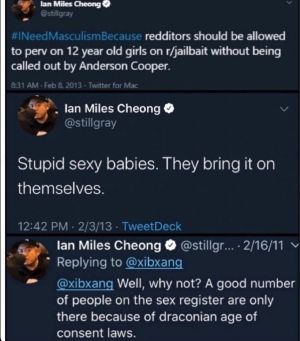
Similar to Carlson, Malaysian influencer, Ian Miles Cheong[29] has been repeatedly criticized for his views on Adult-Minor Sexual Relations, despite performing anti-Muslim and anti-LGBT grooming outrage in more recent years.
During his short political career, Nathan Larson had the unenviable distinction of belonging to all three groups discussed in this article. A mildly fascistic ("libertarian") and paraphilic MAP, he was shunned by many. Deemed as central to the incel/pedocel movement and peripheral to the MAP Movement in the late 00s and 10s, he is a highly divisive figure among MAPs, due not only to his views on race (advocating for what he termed as "benevolent white supremacy") but because of his misogyny and apparent advocacy for rape, which was likely insincere in part, but to a degree that is rarely agreed upon by most observers. As well as supporting the decriminalization of minor-adult sex, Larson also favored the legalization of child pornography, polygyny, and incest in his 2008 manifesto when he was still running an election to congress.[30] He was against the US Government's foreign interventionism and regime change agenda, and against what he saw as Jewish domination of the American political and financial systems. After being banned from Wikipedia, he then went on to contribute to and found various chat rooms and wikis supporting topics as disparate as inceldom and children's rights. He wound up starving himself to death in a jail cell after being charged with kidnapping and other felonies, after he had developed a relationship with a 12-year-old as a sign of protest, who was intercepted by police after she had flown out to meet him.[31]
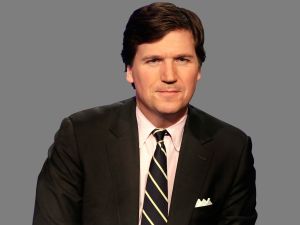
Within the manosphere, the view on heterosexual attraction varies wildly, from outright condemnation to the embrace of at least heterosexual hebephilia in various parts of the movement, while other show apathy to it, viewing the issue as peripheral and not worth the trouble. The case of the “pedocel” and advocacy for the lowering of the age of consent to puberty is well documented in the incelosphere.
An example of such embrace comes from James C. Weidmann, founder of the now-defunct pick-up blog Chateau Heartiste, who justifies male attraction to female teenagers as being a natural part of male sexuality:
It is a fact of life that young teenage girls who have developed secondary sexual characteristics are desired by men of all ages, even 90-year-olds. And these exquisite nymphets, in turn, desire older men for their power. These desires are natural and frightening to the keepers of the order. They provoke the envy of the left behind, and so are condemned.[32]
Among masculinist and men’s rights activists (MRAs), the views vary wildly, with past MRAs often being critical of the age of consent and how it disproportionately affects men and fuels the current stigmatization of male heterosexuality in western society. Here, the the age of consent is viewed largely as part of feminist legislation that harms men, although few if any have ever gone to expand their critique beyond their support for hebephilia.[33] Another notable figure within the movement includes the (now deceased) Angry Harry, who vehemently opposed the NSPCC for its demonization of men and for what he essentially saw an abuse industry in itself,[34][35][36] taking shots at the iatrogenic harm induced by the mainstream media.[37] He would also go on to celebrate Michael Jackson’s non-guilty verdict as a victory for men in general; a victory over a hysterical and misandrist society.[38]
Another example includes former MRA and current male sexualist Eivind Berge, who calls into question the age of consent and the various laws surrounding it (such as the Romio and Juliet exemptions),[39][40] on the top of defending pedophilia in general (making him exceptional in the manosphere), women-boy relationships that don’t involve force or coercion but are still criminalized due to gender equalization in statutory rape laws advocated by late feminists.[41] To this day, few prominent MRAs ever criticize the entire concept of an age of consent, let alone voluntary sex involving female teens.
Robert Lindsay is one such activist, with his website Night Wind, who have gone against the current dogmatic American hysteria over adult-teen intimacy and the modernist idea that “kids can’t consent to sex”,[42][43] as well as attacking the recent panic over sexting and its mainstream portrayal as another form of abuse,[44] levying arguments against the age of consent as being illogical and ideologically-driven.[45][46]
Pederasty and the right-wing
Despite the idea being seemingly contradictory and subject to humor and derision in mainstream discourse, there is a long history of association between right-wing ideology and homoerotic aesthetics (in particular, pederasty, particularly amongst West European and Japanese fascists, who draw their justifications from their respective ancient cultures).
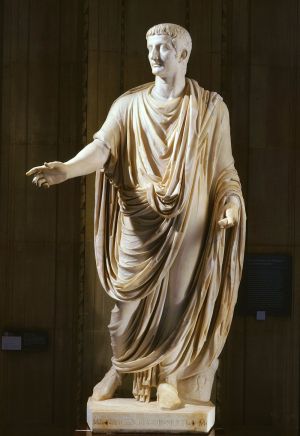
Past epochs
In the European context, antecedents include ancient Greek philosopher Plato, who in his Phaedrus and Symposium extensively describes the reality of the attraction between people of the same sex (including pederasty), and the Laws that reject it and condemn it. In the ancient Roman context, pederasty was condensed down to a practice between a more dominant male and a more passive one, to preserve semblances of masculinity. With the exception of Claudius, every Julio-Claudian Roman emperor often “lapsed”, so to speak, into “anti-natural” behavior during their lifetime, or accused of such after their deaths: Julius Caesar nicknamed the “Queen of Bithynia and the wife of all husbands”; Augustus was called Octavia with contempt; Tiberius who in Capri preferred barely pubescent boys and called them his “little fish”; Bisexual and incestuous Caligula; Nero who castrates his teenage slave Sporus and then crowns him as royal bride. Other emperors weren’t immune to this, with Hadrian and his profound affection for Antinous, to the point of deifying the latter.[47]
In Asia, the orientalist Leonardo Vittorio Arena points to the promiscuous activities within Buddhist monasteries of the IX century as the origin of codified homosexuality among Japanese samurai, that differs from Greek pederasty in that it’s the young novice that is supposed to take the initiative with the more mature partner. This lineage of homoeroticism that starts from the Buddhist monk-novice relationships to samurai culture, culminates with nationalist author Yukio Mishima and his seppuku (i.e., ritualized suicide) of 1970.[48][49]
Modern era: Neoclassic, romantic, and homoerotic aesthetics
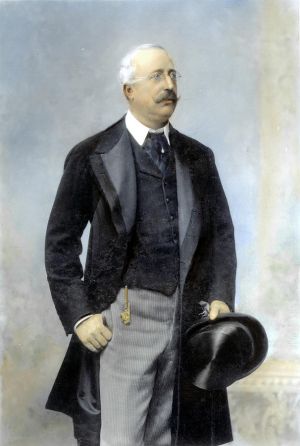
Historian George Mosse affirms the existence of a continuity in the paradigm of beauty and masculinity that starts with German art historian and archaeologist Johann Joachim Winckelmann, his detailed and rigorous descriptions of Greco-Roman art, which influenced the Third Reich’s noted sculptor Arno Breker, or Hitler’s favorite architect Albert Speer.[50] Winckelmann’s subsequent influence on various German figures such as Nietzsche, Spengler and Goethe have been provocatively dubbed as the “tyranny of Greece over Germany”.[51] For his part, Winckelmann denied any relationship between perfect beauty and the desire to have sexual relations with this beauty, even if Giacomo Casanova implied that he practiced pederasty.[52] The Greek virile body, re-discovered via Winckelmann’s descriptions, would later be used by the various European nationalist movements as the normative ideal for European masculinity.
Italy and Greece were popular destinations for German conservative elites who were fascinated by classical culture. Such noblemen include literary and cultural giants like: Winckelmann (fatally stabbed by a rent boy in Trieste); count August von Platen, the inspiration for the protagonist of Thomas Mann’s Death in Venice; Steel magnate Friedrich Alfred Krupp (committing suicide in 1902 following accusations that he engaged in orgies with Italian boys); Photographer Wilhelm von Gloeden, whose pederastic photography work in Taormina featuring Sicilian boys is deemed seminal in male nude photography.[53]
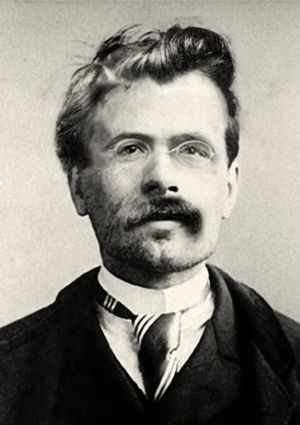
Friedrich Engels, one of the founding fathers of communism and close collaborator of Karl Marx, threw his disgust against the abominable vice of the pederasts in "The Origin of the Family, Private Property and the State" (1884), denouncing Greek antiquity for its homosexual activity.[54] By contrast, Friedrich Nietzsche, who some Nazi politicians had attempted to appropriate as "one of the pillars of right-wing thought," spoke positively of historical pederasty. In the aphorism 259 of “Human, Too Human” (1879), he wrote:
The erotic relationships of men with young people were, to a degree not accessible to our understanding, the necessary and only assumption of any virile education [...]. Young people have never been treated so carefully, so lovingly, with such an absolute regard to their good again
Germany: The pioneers of gay rights activism, gay German youth, and Nazism
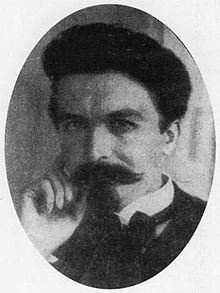
The German Empire in the late 19th century served as the birthplace of the initial homosexual movement, with figures like Karl Heinrich Ulrichs and Magnus Hirschfeld pioneering gay rights activism. A lawyer and journalist, Ulrichs publicly declared his sexual preferences in 1867, advocating for the repeal of repressive laws before dying in exile in 1895. Hirschfeld succeeded him, establishing a Scientific-Humanitarian Committee in 1897 and an Institute for Sexual Research in 1919, providing medical, psychological, and legal support for homosexuals, though the institute was later targeted and destroyed by the Nazis in 1933. Notable signatories to Hirschfeld's petition to repeal paragraph 175 of German law criminalizing “acts against nature” included Stefan Zweig, Albert Einstein, Leo Tolstoy, and Thomas Mann. Despite these efforts, a wave of homophobia swept Germany following the Eulenburg affair of 1907-09.[55] Concurrently, the Anarchist Adolf Brand founded Der Eigene in 1896, the first homosexual periodical in the world, advocating "outing" famous gay men and challenging social norms. Brand's anarchist radicalism contrasted with Hirschfeld's socialism, and his writings have been reclaimed by romanticist anarchists (although they often omit his nationalist and elitist views).
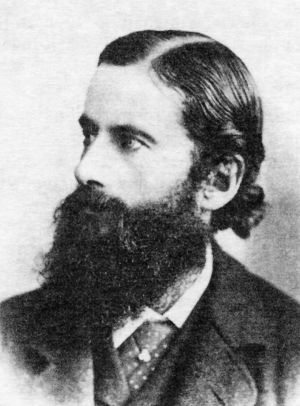
In 1903, Brand, militant activist of Jewish ancestry Benedict Friedlaender, and ten colleagues founded the homosexual organization Gemeinschaft der Eigenen (GdE), usually translated as Community of the Special. The GdE rejected Hirschfeld's understanding of homosexuality as a "third sex," "inverted" sexuality, or effeminate disposition. Instead, they emphasized the masculinity of male-male sexuality, as did the Nobel prize winning pederasty (homosexuality) defender Andre Gide in his 1924 Corydon. Some members of the GdE advocated the classical Greek practice of pederasty, a relationship between a married man and younger male, as an important pedagogical social institution. The GdE spurned Hirschfeld's efforts at law reform and coalition-building with the Social Democrats and the feminist movement, adopting instead a diffusely anarchist outlook inspired by Max Stirner's egoist individualism, and the sweeping cultural criticism of Friedrich Nietzsche.
Gustav Wyneken, German pedagogue and writer, was neither to the far-right nor a left-wing extremist, but his influence on educational theory was profound. His ideas of “youth culture” and “pedagogical eros” gave inspiration to movements like the Wandervogel (officially founded in 1901), and Brand’s GdE.
The Wandervogel movement quickly became the prominent youth movement in the nation, aiming to be an organization in constant empathy with the natural environment. It emphasized freedom from adult supervision, spontaneity, and responsibility towards others, alongside a spirit of adventure, while ideologically adopting a strong nationalist approach rooted in tradition and highlighting Germany's Teutonic (mythical pagan) roots, inspired by ancient Greece and the naturalist movement.
In 1912, journalist and writer Hans Blüher, a leading figure in this far-right youth homosexual movement, published an essay titled "The Wandervogel Movement as an Erotic Phenomenon," subtitled "Contribution to the Recognition of Sexual Inversion." His writings have rarely been translated in English, but as of 2024, an English pamphlet created by a relatively obscure defunct French MAP political organization, had become freely available online.[56] Blüher clearly states that the common denominator binding these young males together is Eros, meaning erotic attraction between individuals of the same sex, and he further asserts that homoerotic impulses are fundamental for forging bonds of masculine friendship, with its parallel celebration of camaraderie among males (pure community of men), thus assumes a genuine cultural role. Thus, only this cultural-social system allows for the creation of a community composed of heroic natures, charismatic leaders capable of attracting valiant warriors. This sublimated homosexual erotic tension manifests as an excess of energy, a vital force that, unable to find physical expression, culminates in the "creative genius" of a “Mannerbund,” or society of men.
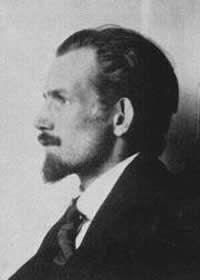
Blüher would later revisit the same themes between 1917 and 1919, with two volumes of "The Role of Eroticism in Male Society." His books became cult texts among homosexuals, including some Nazi leaders, notably Ernst Rohm. In 1921, Gustav Wyneker published "Eros," an essay by that exalted love between boys; and in 1926, the lawyer Erich Ebermayer published "Youth and Eros," an explicit defense of adolescent homosexuality and pederasty. The latter text was publicly appreciated by Thomas Mann himself.
This homoeroticism, as represented by these movements, had less to do with free love than with building a relational hierarchy between men, where the selection of an elite to lead the masses would take place among males. This idea of a fraternity of men would essentially separate the boy from the mother's (and women's) negative influences, and raising a boy to be a “real man” with masculine vigor. Such values would be inculcated in the boy via scouting and other hierarchical organizations. Pederasty and fraternal relationships would thus serve to morally reinvigorate what these thinkers saw as a morally decadent society.[57]
Blüher's ideas about the "manly alliance" between males, against the woman's "devirilizing" influence, came to be viewed with hostility by the Nazi hierarchies. This was especially after the night of the long knives physically liquidated the group of people most sensitive to Blüher's theories: homosexual themselves. In a secret speech given by Heinrich Himmler to the SS in 1937, Blüher's ideas were expressly indicated as dangerous and to be opposed.[58]
D’Annunzio’s enterprise in Fiume
Defend the beauty! This is your only office. Defend the dream that is in you!
Gabriele D’Annunzio
Futurism, an Italian cultural and artistic movement that had its start in the early 20th century, held a more libertine attitude on sexuality for its time, where instead of a rigid heterosexuality-homosexuality binary there was, if anything, a clear distinction between active and passive sexuality. Futurists ultimately only despised effeminacy with its cheesy and too languid attitudes.
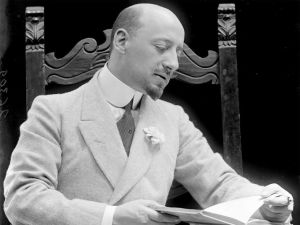
The hypocrisy in this regard had a significant exception in 1919-20, during the enterprise of Fiume (now Rijeka) by rebel units of the Royal Italian Army under the command of the poet-warrior Gabriele D’Annunzio, at the time a city contested between the Kingdom of Italy and the Kingdom of the Serbs, Croats, and Slovenes (i.e., monarchist Yugoslavia) following World War 1. His occupation, motivated by Italian irredentism, gave life to the Italian Regency of Carnaro, which would last for sixteen months. To give us direct testimony is the bisexual writer Giovanni Comisso, who participated in the action when he was 24 years old: Transgression of the norms, mass rebelliousness, sexual freedom, homosexuality, drug use, originality of attitudes, were the main characteristics of this counter-society.[59]
The occupation of the Istrian city constitutes a transgressive social experiment, especially in terms of sexuality. Futurist Mario Carli, in his book "Trillirì" (1922), says in no uncertain terms that pushing many volunteers to Fiume would have been precisely the open sexuality, hence the presence of the widest variety of people, "from the colonel looking for women to the pederast looking for boys".
One day from the window of his office D'Annunzio saw the Arditi [Royal Italian elite troops] going two by two towards the hill and pointed to them saying: "Look at my soldiers, they go in pairs like Pericles' soldiers.
Giovanni Commiso, Le mie stagioni (2002)
The Fiume occupation led by Gabriele d’Annunzio was not only a political revolt but also a cultural experiment characterized by a bold embrace of libertarian ideals and radical social norms. D’Annunzio, often referred to as the Comandante-Vate, infused the enterprise with a spirit of transgression and celebration of freedom, epitomized in the shared vision of the Futurist movement. The atmosphere encouraged "unlimited enjoyments, amusements, and a free flow of desires," promoting uninhibited behavior devoid of traditional moral constraints. After his iconic battle cry, “Eia! Eia! Eia! Alalà!!,” d’Annunzio would famously conclude with the exclamation, “Long live Love!”—a declaration reflecting the revolutionary ethos of the movement.
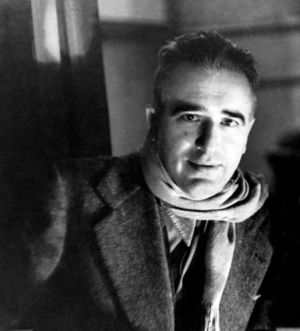
The Charter of Carnaro, the constitution proclaimed during the occupation, exemplified the radical vision of Fiume’s rebels. It provided for universal male and female suffrage, freedom of opinion, religion, and sexual orientation, and went further to decriminalize homosexuality, nudism, and drug use. These provisions marked Fiume as a haven of progressive ideals that challenged the conservative norms of early 20th-century Europe.[60] The enterprise would come to an end when the rebels, in opposition to the treaty of Rapallo between Italy and Yugoslavia, were forcefully removed from the city by the Italian royal army in the Bloody Christmas of 1920.
Despite its abrupt conclusion, the occupation of Fiume had a profound and lasting impact on Italian history and politics. It revealed the fragility of the Italian government, exposing its inability to handle radical domestic uprisings. Moreover, the nationalist organizations that supported the occupation became instrumental in the formation of the Italian Fascist Party. The cultural and political strategies employed by d’Annunzio—such as mass spectacles, charismatic leadership, and the fusion of political ideology with theatricality—profoundly influenced Benito Mussolini and shaped the core tenets of Fascism.
Fiume’s libertarian experiment remains a paradoxical legacy: while its progressive aspects symbolized freedom and defiance of conventional norms, its influence on Fascism underscores how radical movements can serve as stepping stones for authoritarian regimes. The enterprise continues to be studied as a defining moment in the interplay between utopian idealism and the rise of modern nationalism.
France: Pederasty and WW2 collaborationism
Sociological problem: why so many pederasts among the collaborators?
Jean Guéhenno
Journalist and writer Robert Brasillach, after his indictment for treason by the liberated French government, was shot in February 1945. His case is among the most unique ones, for he was condemned not for his actions so much as for his thoughts: He adhered to national socialist ideology and doctrine, defined by him as “the poetry of the XX century”. Among his contemporaries, many attest to his homosexuality.

Chief among them are Louis-Ferdinand Céline, Jean-Louis Bory, and Pierre Drieu La Rochelle, who thought of him as an effeminate pederast, with Bory using Brasillach as a prime example of the strong homoerotic nature of the collaborationist environment during the German occupation of Paris as part of his 1976 documentary. Jean-Paul Sartre thought that Drieu himself was a pederast, depicting him as a visionary dandy and lover of youthful rent-boys, but also of strong and virile German soldiers.[61]
Dominique Fernandez argues that the writer's homosexuality was latent - repressed, and therefore extremely harmful -, a fact that he began to participate in the annual Nuremberg ceremonies and visit the campsites of Hitler's youth from which he returned each time literally ecstatic; his homophilia as well as aesthetic tension towards homoeroticism constitutes, according to Mosse, an exemplary case about the homoerotic impulses widespread throughout Nazi culture.
Brasillach’s entire literary work revolves around the concept of strong male friendship, the camaraderie among men free from the hindrance of female presence, often explicitly referencing pederastic relationships. This is particularly evident in his first book from 1931, "Présence de Virgile," an authentic apology for homoeroticism: "Virgil loved to surround himself with young men. A boy of perfect beauty, who wrote poems and sang them while playing the flute, lived in his house. And often Virgil was captivated by the ambiguous charm of his own sex... Anyone who found this way of loving or this form of pleasure natural." Regarding his admired and intimate friendship with his contemporary (and future brother-in-law) Maurice Bardèche, as well as a figure in the French radical right, many gossiped, soon nicknaming them "Brasillecher and Bardache" (lèche in French means "lick," while bardache/bardassa refers to a young male prostitute).[62]
Children who will one day become twenty-year-old young men will learn with dark wonder about the existence of this exaltation, the youth camps, the glory of the past, the parades, the heroes fallen in combat, the friendship among young people of all nations... Communism, too, has its own greatness, equally exhilarating. It may even be that, in a thousand years, the two Revolutions of the twentieth century will be confused.
Robert Brasillach[63]
Apart from Brasillach, there are other French collaborationists who were homosexuals, such as Roger Peyrefitte, author of the book “Les Amitiés particulières”, who faced accusations of collaborationism over his diplomatic work for the Vichy regime.
The post-war French New Right
Like the subculture of French collaborationists in WW2-era France, pederasty and the appreciation of youth flourished alongside MAP advocacy in what would be termed as the Nouvelle droite (New Right).
The far-right press is hysterically hostile to “paedophiles”. They are in his eyes the enemy N. 1, the incarnation of the abhorred Left, and that makes me laugh because I have known, I know a very large number of “paedophiles” and they were, they are almost all Right or far-Right.
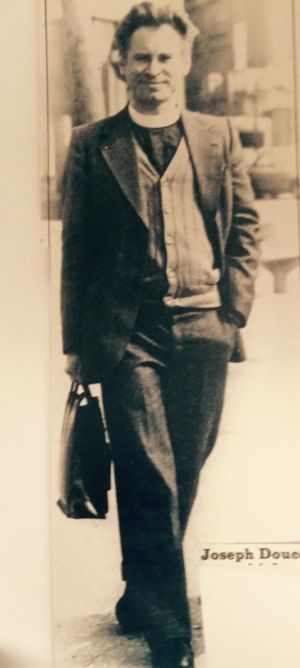
Joseph Doucé, a Flemish Belgian psychologist and (defrocked) Baptist minister, openly declared himself a homosexual in 1976, and founded the “Centre of Christ the Liberator” (Center du Christ liberateur) in Paris, a refuge for homosexuals, transgender people, sadomasochists, and pedophiles. He was a co-founder of ILGA (then called the “International Lesbian and Gay Association”), and in 1982 created a publishing firm called Lumière et Justice which would published under his direction. One such book was “Paedophilia in question” in which Doucé “develops scabrous theses and explains wanting to decriminalize paedophilia”.[65] Whilst Doucé himself is not explicitly known for being on the political Right, he managed the magazine subscriptions of the monthly Gaie France magazine created by far-right MAP advocate Michel Caignet (see below). Doucé he was connected to a British born priest named Nicolas Glencross who, since 1948, served a small parish in Nièvre, Saint-Léger-des-Vignes. While serving as a pastor to defend LGBT people, Glencross was also involved in nude photography of boys in places like India, Peru, and Sri Lanka, where he paid each child 50 francs.[66] Glencross also enjoyed drawing children naked. Prior to his arrest in 1990 and the subsequent police raid at Nièvre, Glencross kept contact with French journalist and publisher Michel Caignet.
Michel Caignet was a neo-Nazi, anti-Semitic and holocaust denier[67] who, in 1986, founded the monthly Gaie France in which he proclaimed love for boys, with the aim of having a gay magazine with ideals closer to the French Nouvelle droite (“New Right”). Paul Raisant led Association of Friends of Gaie France, which published a bulletin called Sparte, homosexualité et tradition in 1987. Nouvelle droite journalist Guillaume Faye, writer Pierre Gripari, militant atheist and gay rights activist Claude Courouve, and far-right publisher Phillipe Randa, son of novelist Peter Randa, were among its contributors,[68] whilst Doucé himself managed the magazine’s subscriptions.[69] By ministerial decree dated 27 May 1992, for Gaie France the sale to minors was banned on charges of "inciting paedophilia"; it stopped publications the following year;[70] in 1997 Caignet was tried for the dissemination of pornographic films with minors produced in Colombia three years prior, under the name “Toro Bravo” for distribution to his readers, getting sentenced to four years in prison.
Present-day
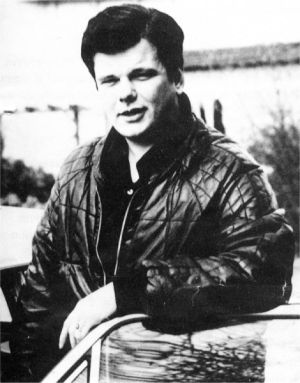
In 1991, at the age of 36, Michael Kühnen, the undisputed leader of German neo-Nazism in the 1970s and 1980s, died. He had AIDS and was homosexual in orientation.[71] In 1986, he published an essay titled "National Socialism and Homosexuality," referring to the homoerotic tradition within some male unions within the SA (Sturmabteilung). In response to the "anti-fag rebellion" created by a group of his former followers, he urged his comrades to free themselves from the petty-bourgeois mentalities of Judeo-Christian origin and instead draw inspiration from the pagan teachings of nature's vitality, where homosexuality has always had its place and meaning. Even his deputy, Thomas Brehl, was later declared a "fag" and marginalized from the neo-Nazi movement.
Kühnen leadership remained unchallenged until 1990, when he proposed to the Iraqi ambassador to send volunteers to fight alongside Saddam Hussein's forces during the Gulf War. In 1986, while serving a prison sentence for extremism, he entrusted his friend and comrade Michel Caignet (a Holocaust denier later accused of “paedophilic propaganda”) with the printing of the pamphlet. Kühnen claimed that homosexuality is a completely natural, hereditary predisposition, destined by nature for a small elite of men so that they can dedicate themselves to the service of the community, survival, and cultural development of society without the burden and conditioning of reproductive sexuality, views similarly held by the early German gay rights activists of imperial Germany.[72]
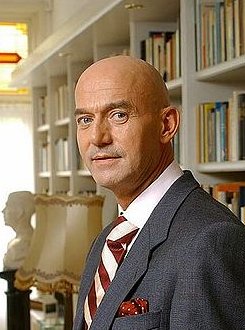
Pim Fortuyn (1948-2002), the charismatic right-wing Dutch politician murdered on the 6th of May 2002, was a powerful advocate for pedophilia, standing to gain around 20% of the votes in the 2002 Dutch general election prior to his death. His controversial views on race, immigration, liberalization of drug laws, and his open homosexuality were well-known. Despite his approval of pedophilia not being a secret, Dutch journalists covering his election campaign ignored it. Ireen Van Engelen, an anti-pedophile campaigner in Holland, expressed frustration, stating, "I have been writing to journalists around the country for months as Fortuyn's popularity grew, asking them to challenge him on his views about pedophilia. But none of them dared. I also wrote to ministers, but none of them were interested. It's a disgrace." Fortuyn's own words shed light on his beliefs, as he wrote, "In the 1970s and 1980s, Brongersma slowly but surely gained ground...This enlightened point of view has meanwhile been abandoned... We are far removed from the understanding that Brongersma tried to foster, to our own detriment, for that matter." In his autobiographical work "Babyboomers", Fortuyn revealed early sexual experiences with adult males, justifying his stance on legality based on personal enjoyment of such experiences in his childhood when he was 5 years old.[73]
In an interview from a January 2016 episode of the podcast Drunken Peasants, Milo Yiannopoulos explained how sexual relationships between 13-year-old boys and adult men and women can "happen perfectly consensually", because some 13-year-olds are sexually and emotionally matured enough to consent to sex with adults. He used his own experience as an example, pointing out that he was mature enough to be capable of giving consent at a young age. He also correctly stated that "pedophilia is not a sexual attraction to somebody 13 years old, who is sexually mature" but rather that "pedophilia is attraction to children who have not reached puberty." Later in the interview, after his previous comments received some pushback from the hosts, he stated: "I think the age of consent law is probably about right, that is probably roughly the right age ... but there are certainly people who are capable of giving consent at a younger age, I certainly consider myself to be one of them."[74]

Yiannopoulos thereafter claimed that his statements were merely attempts to cope with his own victimhood, yet in 2019, he appeared to agree with Jordan Peterson in affirming the content of Rind et al, a study that challenges the assumption of universal trauma.[75]
Following his defensive comments in 2017, Yiannopoulos was later criticized for attending Hollywood "boat parties" and "house parties" in which boys he described as "very young – very young" were engaged in pederasty but failing to report the abusers to the authorities or to identify them during an appearance on The Joe Rogan Experience. When asked about this by Ryan Lizza of New York magazine, Yiannopoulos said he "didn't check anyone's I.D.s." and that he "had no idea what the ages of any of those people at the parties were." He stated that when he said "very young" he was assuming that they were sixteen or seventeen. He reiterated that he doesn't "advocate for any illegal behavior" or excuse it. When, on 10 March, an additional video emerged in which he said on a 2015 episode of Gavin McInnes's show that minor-adult sex is "really not that big a deal. You can't let it ruin your life," Yiannopoulos was criticized for mocking child sexual abuse victims by calling them "whinging selfish brats" for "suddenly" remembering they were abused and "suddenly" deciding it was a problem 20 years after the event occurred. He also stated that a disproportionate number of pedophiles are homosexual.[76][77]
Reasons for supporting the right among MAPs
Many advocates within the political right and centre-right argue for (limited or full) acceptance of MAPs (Minor-Attracted Persons), and/or voluntary sexual contact and relationships between minors and legal adults, citing various rationales. Some, interested more in logic, go on to view the concept of the arbitrary age of consent as illogical. Moreover, there's a prevalent sentiment against government interference in private matters, a stance particularly common among libertarians. Additionally, there's a reactionary attitude towards feminism, often viewed as hostile towards male heterosexuality and responsible for the current oppression of MAPs in the developed world as well as for advancing the modern age of consent. Some individuals also advocate for MAPs out of contrarianism or as a rejection of what they perceive as a modernist agenda that undermines traditional values, such as the preservation of the family as society’s basic unit. Unfortunately, many often limit their advocacy to the acceptance of hebephilia while trashing pedophilia, by using appeals to nature to point to their attraction being “natural” and thus “non-paraphilic”, unlike pedophilia, although such points seldom convince antis as to why they should carve out an exception for their hatred to teen-lovers. In a sense, anti-pedophilic hebephiles and ephebophiles share similarities with “ironic lolicons” in their bid for societal acceptance by striving to distance themselves from the “pedophilia” label.
Critics of the political Left's emphasis on egalitarianism and equality in all contexts argue that the leftist talking point of age-gap relationships being inherently abusive due to power imbalances derives from the same principles of radical individualism and absolute bodily autonomy used by pro-C MAPs in political discourse, with the critics pointing out that power imbalances are inherent in all personal relationships, thus questioning whether MAPs should engage in the dialectic of radical individualism and bodily autonomy instead of breaking said dialectic.
Within the community of male boylovers, certain aspects hold appeal. The neoclassical aesthetic, with its emphasis on beauty and harmony, resonates deeply. Moreover, there's a fascination with the pedagogic tradition underpinning historical pederastic practices, where older mentors guided and educated younger individuals. Additionally, the concept of a mature man forming an intimate bond with a young boy, sharing experiences, and understanding of masculinity, serves as a cornerstone of attraction for some. These elements contribute to the multifaceted discourse surrounding rightist MAP advocacy within different forms of attraction.
Editorial Commentary: Relevance of right-wing ideology, and discussion among MAPs
Among political issues, right-wing ideology is a highly polarizing topic. MAPs are no exception from this rule, since their political opinions run the gamut of every part of the political spectrum, i.e. the general right-left divide is applicable to MAPs too. Some MAPs are non-partisan and instead see their MAP identity as the base for their beliefs.
Conversely, others see their MAP identity as secondary to their broader political convictions. Given the absence of a comprehensive critical theory addressing the needs and concerns of all segments of the minor attracted community, it's common for MAPs to integrate their political beliefs into their activism, hence many MAP rights activists draw upon various (and at times, contradictory) ideological frameworks, whether left or right-leaning, to advance the cause of MAP acceptance.
Among leftist and center-left MAPs, there exists a palpable aversion to anything associated with the political right, driven by historical antecedents and contemporary ideological clashes. This sentiment stems partly from a rejection of fascism and religion, and a commitment to countercultural movements (such as the sexual freedom and gay rights movements) that emerged in the post-war era, from which 1st-wave MAP activism first emerges. Additionally, the influence of identitarian and secular-liberal politics among contemporary leftist movements has further entrenched this animosity towards right-wing ideologies. Left-leaning MAPs sometimes align themselves with broader leftist movements, such as sexual liberation, LGBTQ+ and secular liberalism, viewing them as allies in the fight for societal acceptance, individual autonomy and the liberation of MAPs as the continuation of a sexual, or identity-revolution.
In other cases, Left and Anarchist-leaning MAPs show open hostility towards the LGBTQ+ project, liberal values and some aspects of identity-based politics, characterizing them as reactionary.
MAPs who reject broader left-wing and liberal activism, may feel marginalized within the movements and perceive them as ineffective or even detrimental to their cause. Heterosexual girl-lovers, for instance, may view mainstream feminism as obstructing the acceptance of their attractions and see little incentive to align with movements that display outright hostility to them and fail to address their concerns. Some MAPs, particularly those influenced by internet culture and "chan" imageboard communities, reject leftist politics altogether, viewing them as dogmatic and out of touch with reality. Right-leaning MAPs point to a variety of factors to justify their disassociation from leftist circles. They highlight increasing opposition to queer ideologies in Western societies and alleged failures of 1st-wave MAP activists in addressing man-girl love preceding their downfall in the 1990s. Secularization of anti-CSA dogma into a secular political "theology" in its own right throughout the Anglosphere and much of continental Europe is also a concern, as is the left’s realpolitik in perpetuating its own brand of pedophobia. Additionally, they perceive the mainstream left and LGBTQ+ lobby as hostile towards age-gap intimate relationships, particularly heterosexual ones where the younger partner is female. They may argue that aligning with the left is counterproductive to their goals, and question if MAP rights activism is even safe restricting itself solely to left-radical politics.
Amidst this complex landscape of political ideologies, MAPs face the challenge of adapting to a rapidly changing political climate while striving for social acceptance and legal recognition. Recognizing the limitations of rigid ideological adherence, MAP rights activists must draw from the successes of diverse social movements throughout history and remain open to evolving strategies in pursuit of their goals. Only through such adaptability and resilience can the MAP rights movement hope to effect meaningful change in an imperfect world.
See also
Republicans are the real pedophiles
External links
References
- ↑ 1.0 1.1 See our pages on hebephilia and ephebophilia, and Research: Prevalence.
- ↑ Rollingstone article.
- ↑ Metro: Belle Defends Herself.
- ↑ Famous examples include Loren Gray and Charli D'Amelio.
- ↑ Wiki on r/Jailbait.
- ↑ https://fstube.net/w/1QoJyy4rWhp9UCcEhsyqVs
- ↑ http://edition.cnn.com/2009/CRIME/07/24/arkansas.evangelist.trial/
- ↑ https://web.archive.org/web/20110104105347/http://www.statesman.com/blogs/content/shared-gen/blogs/austin/politics/entries/2010/12/01/polygamist_sect_leader_jeffs_a.html
- ↑ https://web.archive.org/web/20210826121314/https://www.bbc.com/news/uk-scotland-44613932
- ↑ Smith, Colin (June 26, 1984). "ACLU: Raid on Sect was Lawless act by Vermont". The Boston Globe. New York Times Company – via Newspapers.com
- ↑ https://www.unicef.org/lac/en/child-marriage-and-early-unions-in-latin-america-and-the-caribbean
- ↑ https://www.timesofisrael.com/brooklyn-hasidic-rabbi-said-under-investigation-over-alleged-child-marriages/
- ↑ https://forward.com/news/476631/rabbi-yoel-roth-hasidic-child-marriage-heichel-hakodesh-breslov/
- ↑ https://vedkabhed.com/index.php/2014/01/03/paedophilia-in-hinduism/
- ↑ https://fstube.net/w/45SpixTpJLCWdcTosKSCRt
- ↑ https://fstube.net/w/mzrK12fBhKBzwjfVcK3Bex
- ↑ https://archive.ph/dkvbY
- ↑ https://archive.ph/0Jlkp
- ↑ https://archive.ph/sJ1D4
- ↑ https://archive.ph/5irUh
- ↑ https://archive.ph/NYcTs
- ↑ https://archive.ph/tf1ju
- ↑ https://fstube.net/w/kuHBXgAno3gjYcSHqdscgn
- ↑ https://archive.is/VzwkE
- ↑ https://archive.is/f5psx
- ↑ https://www.mediamatters.org/video/2014/05/05/foxs-carlson-men-understand-that-getting-sexual/199169
- ↑ https://talkingpointsmemo.com/livewire/tucker-carlson-statutory-rape-whiny
- ↑ https://www.businessinsider.in/in-past-segments-tucker-carlson-defended-relationships-between-teens-and-adults-and-called-out-samantha-bee-for-saying-c-/articleshow/68365055.cms
- ↑ There’s a long, disgusting history of right-wingers defending child predators
- ↑ https://web.archive.org/web/20180606111002/https://www.washingtonpost.com/news/local/wp/2018/06/01/hes-pro-incest-pedophilia-and-rape-hes-also-running-for-congress-from-his-parents-house/
- ↑ https://www.rawstory.com/nathan-larson/
- ↑ https://web.archive.org/web/20120205222738/https://heartiste.wordpress.com/2008/03/30/march-2008-comment-winner/
- ↑ https://archive.ph/oQejZ
- ↑ https://web.archive.org/web/20111012052601/http://angryharry.com/esDoWeNeedAnAbuseIndustry.htm
- ↑ https://web.archive.org/web/20111011161725/http://angryharry.com/esNSPCCNeedsToBeStopped.htm
- ↑ https://web.archive.org/web/20111010185357/http://www.angryharry.com/esNSPCCExposedYetAgain.htm?note
- ↑ https://avoiceformen.com/featured/how-the-tabloids-encourage-child-abuse/
- ↑ https://angryharry.mra-archive.com/Michael%20Jackson%20-%20A%20Victory%20for%20Men.htm
- ↑ https://www.youtube.com/watch?v=_BnHZbunBEA
- ↑ https://www.youtube.com/watch?v=YknytDXqlY
- ↑ https://www.youtube.com/watch?v=1Q1xp5BXv30
- ↑ https://beyondhighbrow.com/2023/11/25/age-of-consent-laws-and-adult-teen-sex-then-and-now/
- ↑ https://beyondhighbrow.com/2023/08/11/the-kids-cant-consent-to-sex-bullshit/
- ↑ https://beyondhighbrow.com/2023/06/20/underage-girls-doing-sexual-webcamming-are-being-abused/
- ↑ https://nightwind777.blogspot.com/2023/01/sex-and-scientism.html
- ↑ https://nightwind777.blogspot.com/2016/09/americas-pornography-culture.html
- ↑ Marco Fraquelli, Omosessuali di destra, Rubbettino, pag. 98-99.
- ↑ L.V. Arena Samurai Mondadori 2033
- ↑ Omosessuali di destra, preface by Giorgio Galli pag. XIII-XIV
- ↑ Historian George Mosse himself demonstrated in his "Sexuality and Nationalism," the very close links between the so-called third sex and the totalitarian character: G. Mosse Sexuality and Nationalism, Laterza 1986.
- ↑ Paolo Zanotti, Classici dell'omosessualità, BUR, 2006
- ↑ G. Mosse. Sexuality and Nationalism, p. 15. However, Mosse concludes by noting the irony "in the fact that a homosexual, Winckelmann, had adapted Greek art to the tastes of the middle classes and provided the model for the national male stereotype." Moreover, the episode narrated by Giacomo Casanova in “Storia della mia vita” is well known: one day he went to visit Winckelmann who lived in Rome, he finds a young and beautiful boy intent on quickly pulling up his pants in an obvious attempt to compose himself in a hurry" (Casanova, Storia della mia vita, Mondadori vol. IV, pp. 262-3.)
- ↑ Gert Hekma and Donald H. Mader. (2013). Same Sex, Different Ages: On Pederasty in Gay History, in Censoring Sex Research.
- ↑ Historian Hubert Kennedy has famously written on Marx's homophobia.
- ↑ Marco Fraquelli, Omosessuali di destra, Rubbettino, pag. 98-99.
- ↑ Hans Blüher, Heinrich Hoffstiepel [translator], Michel Meigniez de Cacqueray [prelude], Konrad Wolff, Michel Caignet, Family and Male Fraternity: A Theory of the Eros (Les Dioscures, 1994 [1917]).
- ↑ https://pinko.online/pinko-2/reactionary-masculinity
- ↑ https://archive.ph/o/OVLiJ/www.culturagay.it/cg/viewDoc.php?id=1
- ↑ Marco Fraquelli, Omosessuali di destra, Rubbettino, pag. 98-99.
- ↑ https://archive.ph/o/OVLiJ/https://web.archive.org/web/20140102192356/http://ita.anarchopedia.org/Aspetti_libertari_dell'impresa_di_Fiume
- ↑ Marco Fraquelli, Omosessuali di destra, Rubbettino, pag. 98-99.
- ↑ Alice Kaplan Processo e morte di un fascista. Il caso di Robert Brasillach, il Mulino 2003 pag.25
- ↑ cited in P. Serant Romanticismo fascista Sugar 1961, pag.253
- ↑ Down the rabbit hole of right wing pedophile networks
- ↑ https://archive.ph/o/pIq4I/https://www.europe1.fr/societe/letrange-disparition-du-pasteur-douce-il-y-a-peu-de-chances-que-lon-connaisse-un-jour-la-verite-3838508
- ↑ https://archive.ph/o/pIq4I/https://translate.google.com/translate?hl=en&sl=fr&u=https://www.humanite.fr/node/79900&prev=search&pto=au
- ↑ Nicolas Lebourg, « L'invention d'une doxa néo-fasciste : le rôle de l'avant-garde nationaliste-révolutionnaire. Idéologie négationniste, propagandes anti-américaine, anti-immigration, anti-juive »
- ↑ http://books.google.fr/books?id=5OuiSMd_HJsC&pg=PT121&dq=guillaume+faye+gaie+france&hl=fr&sa=X&ei=1rP0Up2hB6aO0AXw4oGYCw&ved=0CEkQ6AEwAA#v=onepage&q=guillaume%20faye%20gaie%20france&f=false
- ↑ https://www.cairn.info/revue-pardes-2005-1-page-49.htm?contenu=resume
- ↑ https://archive.ph/o/OVLiJ/www.legifrance.gouv.fr/affichTexte.do?cidTexte=JORFTEXT000000527183
- ↑ Marco Fraquelli, Omosessuali di destra, Rubbettino, pag. 98-99.
- ↑ https://web.archive.org/web/20141107202734/http://sororite-aryenne.com/michael-kuhnen-homosexualite-et-national-socialisme/; According to this pamphlet, unlike females, males have an indispensable cultural function, and their readiness for even extreme sacrifice is directed towards their peer group, not towards the family as women naturally do. In men, there is a surplus of sexual power that cannot be exhausted in the brief time spent with women. Therefore, this excess sexuality, when set free, should be channeled in favor of friends and in service to cultural society: the best and most useful solution is to use this libido additionally in relationships with other males, preferably with sexually mature adolescent boys. It further emphasizes that homosexuals play a pioneering role within society and the culture they support; being free from constraining ties with women and family, they can dedicate all their energies to embodying communal values. Anti-homosexual hostility developed within National Socialism due to the bourgeois mentality filled with moral prejudices of Judeo-Christian origin. Concludes Kühnen, masculine homosexuals ultimately prove to be the most suitable for leadership and indispensable for continuing the anti-bourgeois and anti-democratic struggle; unlike women, whose recognized role is predominantly private, homosexual males are assigned a prominent and socially significant public-cultural role.
- ↑ https://brongersma.info/Fortuyn_favoured_depraved
- ↑ https://www.huffpost.com/entry/milo-yiannopoulos-on-pedophilia-and-this-arbitrary_b_58ab52a5e4b029c1d1f88d77
- ↑ https://web.archive.org/web/20220815210303/https://www.freespeechtube.org/v/18gt
- ↑ https://www.newyorker.com/news/ryan-lizza/how-alt-right-fellow-traveller-milo-yiannopoulos-cracked-up-the-right
- ↑ https://www.buzzfeed.com/patrickstrudwick/milo-yiannopoulos-described-sexual-abuse-victims-as-whinging
- Official Encyclopedia
- Terminology: Popular
- History & Events
- History & Events: British
- History & Events: American
- History & Events: Australian
- History & Events: French
- History & Events: Dutch
- History & Events: Danish
- History & Events: International
- History & Events: 1970s
- History & Events: 1990s
- History & Events: 1980s
- History & Events: 2000s
- History & Events: 2010s
- History & Events: 2020s